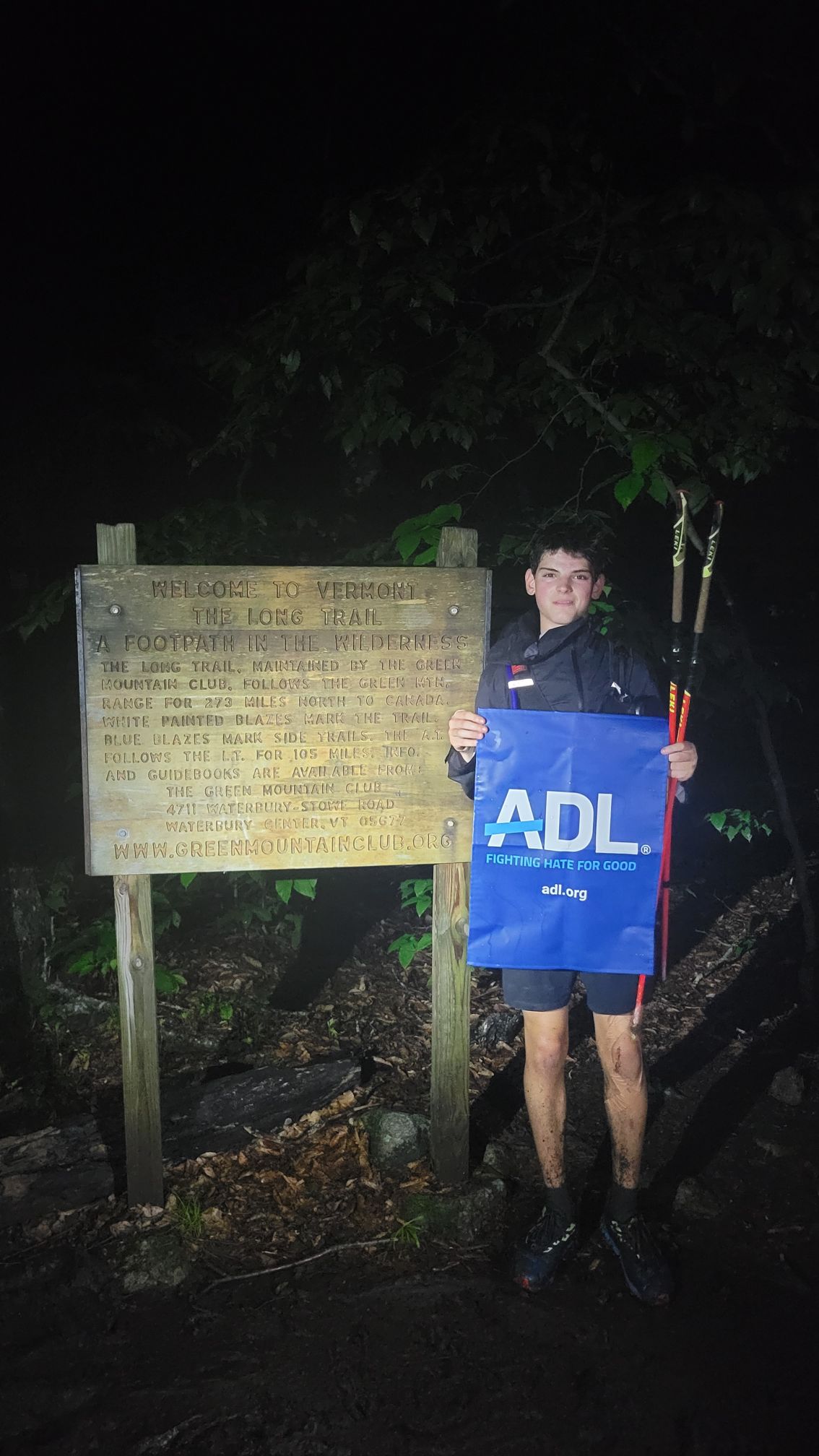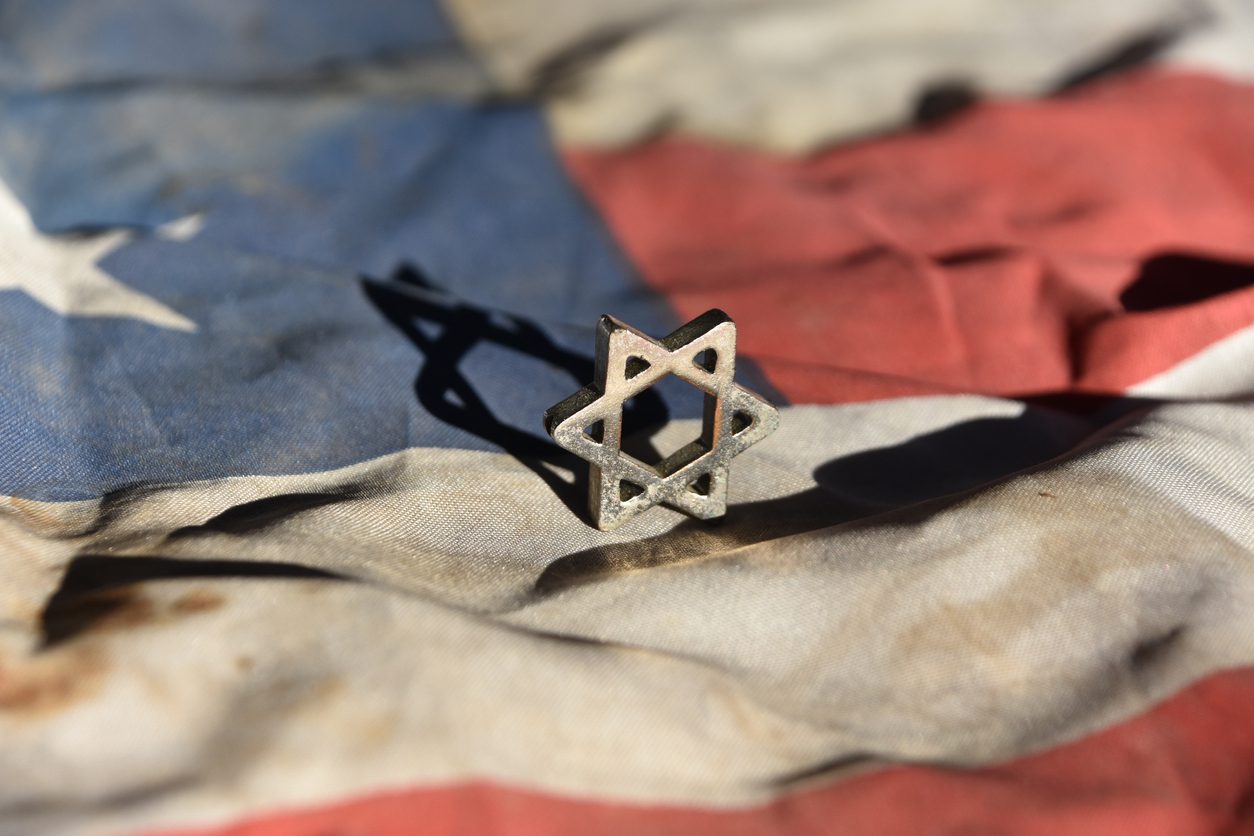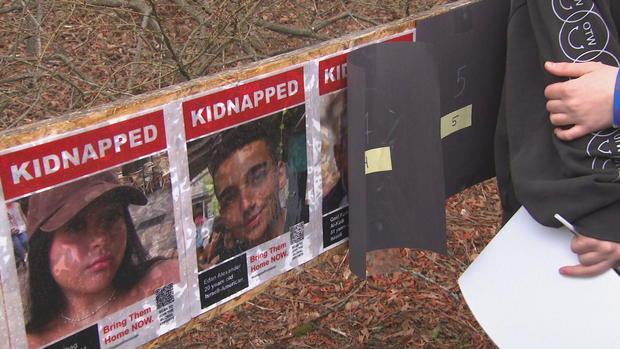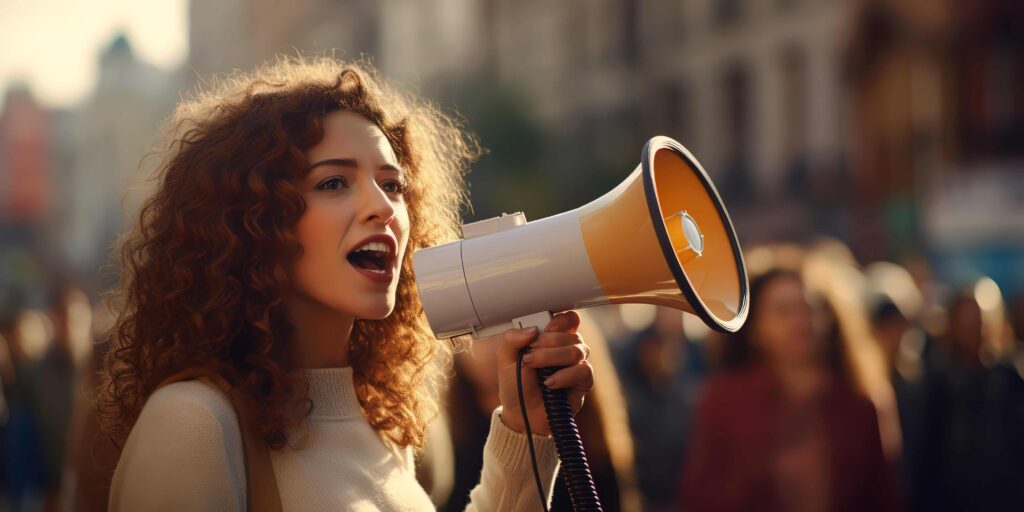By Kara Baskin
While some high schoolers were kicking off their summer by sleeping in, Arlington High School rising senior and athlete Cooper Katzman was hiking 275 miles to raise money for the Anti-Defamation League. From June 26 until July 4, he walked Vermont’s Long Trail—often in the soaking rain—from Canada all the way to Massachusetts.
He dedicated each day of the journey to a horror caused by antisemitism, from Brighton Rabbi Shlomo Noginski’s 2021 stabbing to Pittsburgh’s 2018 Tree of Life Synagogue shooting. While Katzman initially set out to raise $1,800, he collected over $6,000. I spoke to him about the emotionally and physically transformative trek.
How and why did you decide to embark on this journey? I bet a lot of people your age would be pretty overwhelmed by the prospect.
I did my first real backpacking trip in the summer of 2020 with my cousin, about 60 or 70 miles of this trail. I’ve been surrounded by people like my dad, who’s very good friends with [renowned trail-runner] Joe McConaughy, who has been my biggest inspiration. I push myself to the limit to see how fast I can go.
Tell us about the ADL aspect. Is this the first time you ever did such a rigorous hike for a major cause?
I had never done something like this. But Joe had gone for a fastest-known time in honor of the Black Lives Matter movement in 2020. Obviously, I’m not going to have as many people viewing my story, but I do have this platform. I felt I had a responsibility to do something to affect my community.
From a teenager’s perspective, what’s going on in your community? You write on your fundraising website about the rising tide of antisemitism.
At least since I’ve been in middle school, there’s always been stuff at Arlington schools. Antisemitic graffiti has been the biggest one, and a rabbi’s house was burned. While I’ve never been attacked for being Jewish, I know all these stories. All these things are happening around my community. In the hike, I [honored] Steve Ross, who my family was very close to. He was a Holocaust survivor. My family has a lot of connections to people who have been very affected by antisemitism. I feel connected to those attacks. Even though they weren’t hurting me, they were taking away from my community as a whole.
Let’s talk about the physical endurance required, as well as the emotional and mental breakdown of how you did this. How did you mark each day?
I had a lot of time to think and process. The weight of the responsibility on my shoulders motivated me and kept me going. There were many points when even my dad said, “You do not have to keep going.” My feet hurt; my legs burned. Everything was uncomfortable. I was wet. It felt like I had no reason to keep going, but there was just that little voice in the back of my head telling me that I had chosen this path and chosen this responsibility. I felt that it really kept me going.
Tell us about the fundraising. It seems as if you set a modest goal for the ADL, and you really exceeded it. What was that experience like?
Honestly, that was way crazier than I imagined. I had set the goal at $1,800, because “18” is symbolic in Judaism. My parents shared with their friends and our family, and it seemed like a reasonable goal. Within the first few hours, I had gotten $2,000 in donations, and I was just completely surprised. And then, as I kept going, [noted trail-runner] John Kelly’s wife took a picture of me. She posted it to their website, and then I started to get all these donations from the United Kingdom—people I didn’t even know. It was way more support than I ever could have imagined.
What advice would you give to someone who’s setting out to do something physically similar? It seems absolutely grueling.
I curse myself out a little for not training! But obviously I had done similar things like this before. I sort of knew what to expect, though I don’t think I’ve ever experienced discomfort like this. But I had amazing support. I also think that it’s really not to compare yourself to everyone else [in terms of time]. Stay motivated, which is hard. But everyone has a different path to get to the end, and I think everyone is capable of doing this if they put in the work, have the right mindset and stay positive.
What were your days like?
My time came out to something like eight days, 19 hours and 20-something minutes. I did it myself, and my dad would do three food drops. But the first day I saw the weather, it was pouring rain—for the next seven days. I actually did the first three days, going farther than I expected. By day four, I got back on pace. I dropped a few miles just to relax. Without my dad’s support, I couldn’t have done it. He did so much. He would hike in a couple of miles to meet me with food and water. He would carry my pack at points. The last day, I did about 40 miles, and he hiked about 33 of those miles with me.
One of his friends, Scott, would send me messages. He said: “I’m proud of you. I know you’ve already been out there a few days, and maybe some of those days have given you some tough times. It’s not always milkshakes and rainbows on the trail. You’ve got to work through those hard days so you can get to the good ones.” And then he sent me this quote from “Ted Lasso”: “The harder you work, the luckier you get.” Just those things from people who weren’t even there, just sending me support and love, was huge.
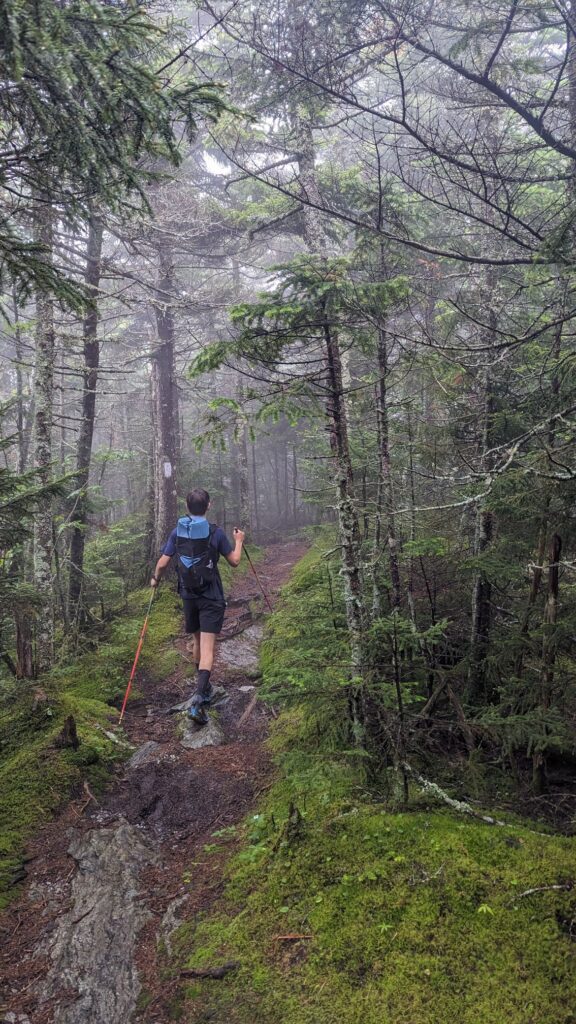
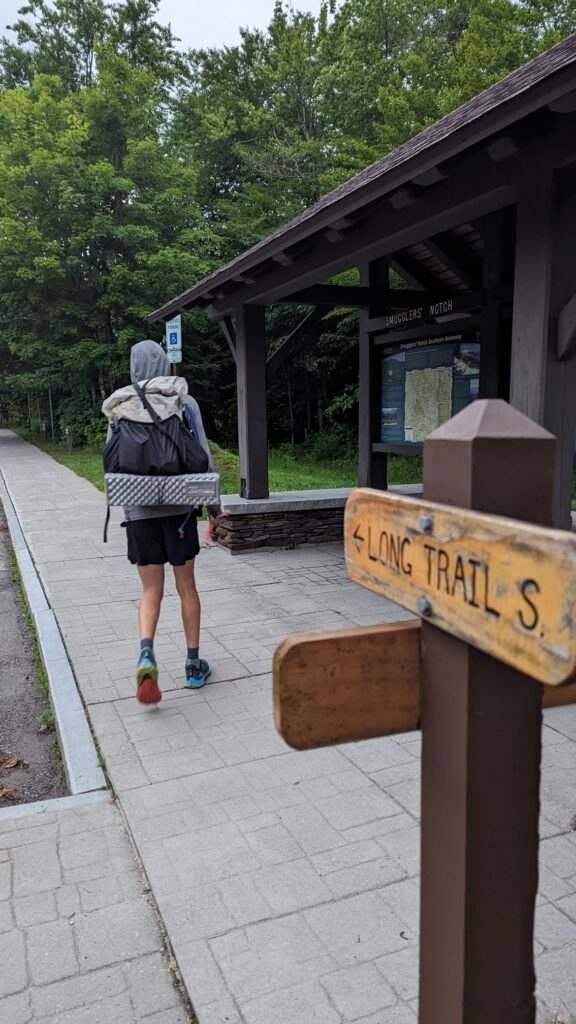
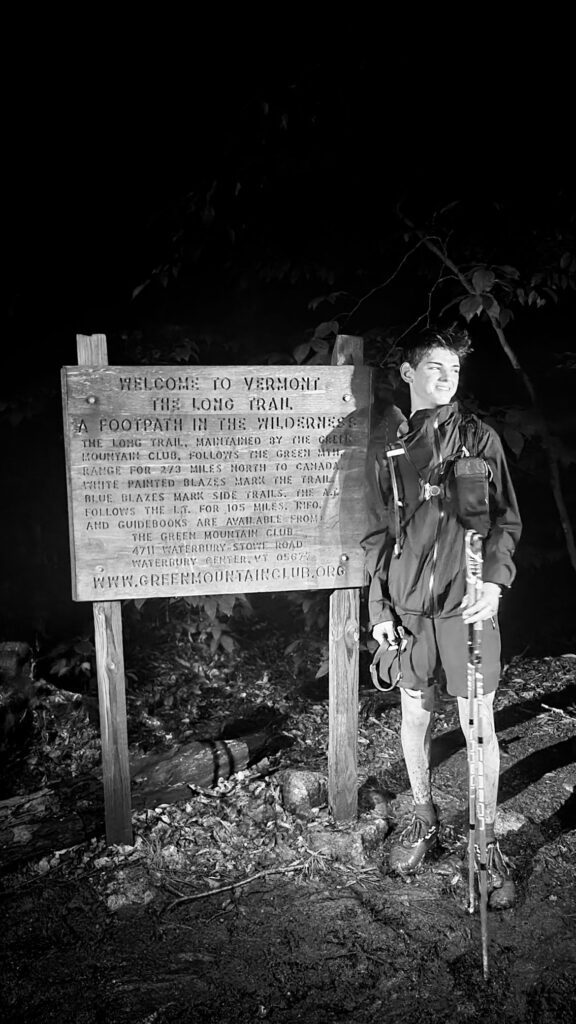
Do you have another journey planned?
In the moment, there were so many times when I was like: “Why am I even doing this? This sucks! This is the worst thing I’ve ever done! I’m so uncomfortable.” But as soon as I was done, I wanted to get back out and do another one. And, from what I’ve seen, doing something like this can give you a massive platform. So, I definitely want to try to do something like this again, to maybe raise awareness or support for either the same or a different cause.
Did you have an experience or epiphany during your journey that really crystallized why this cause, antisemitism, matters to you so much?
I had a lot of very meaningful moments not only with myself but with my dad. We were able to talk and have really great conversations. The last two miles of the trail, it was late, probably 11 p.m., and it was super-wet. The trail was soaked, just a puddle. And I just stopped talking. And for those two miles I was in the zone, in the flow, and I had a very clear picture in my mind of how every single person who had ever hiked the trail was just supporting me. Their power and energy were in my legs. That’s kind of how I felt throughout the whole thing. I just had this whole community, all of these people, sending me love and support, and it carried me and pushed me over the edge.
What would you say to other people your age who might not hike, but who want to fight and raise awareness against antisemitism?
Do what you love. Do what you have a passion for. People will see that. Hiking doesn’t have to do with antisemitism, but you can connect it. You can connect anything you have a passion for to whatever cause you’re trying to fight for. And I think people will see that passion, and people will support you. The more support you get, the more passionate you’ll get. It’s a cycle.
Kara Baskin is the parenting writer for JewishBoston.com. She is also a regular contributor to The Boston Globe and a contributing editor at Boston Magazine. She has worked for New York Magazine and The New Republic, and helped to launch the now-defunct Jewish Rock and Roll Hall of Fame. Email her at kara@jewishboston.com.
 Share your story
Share your story 
